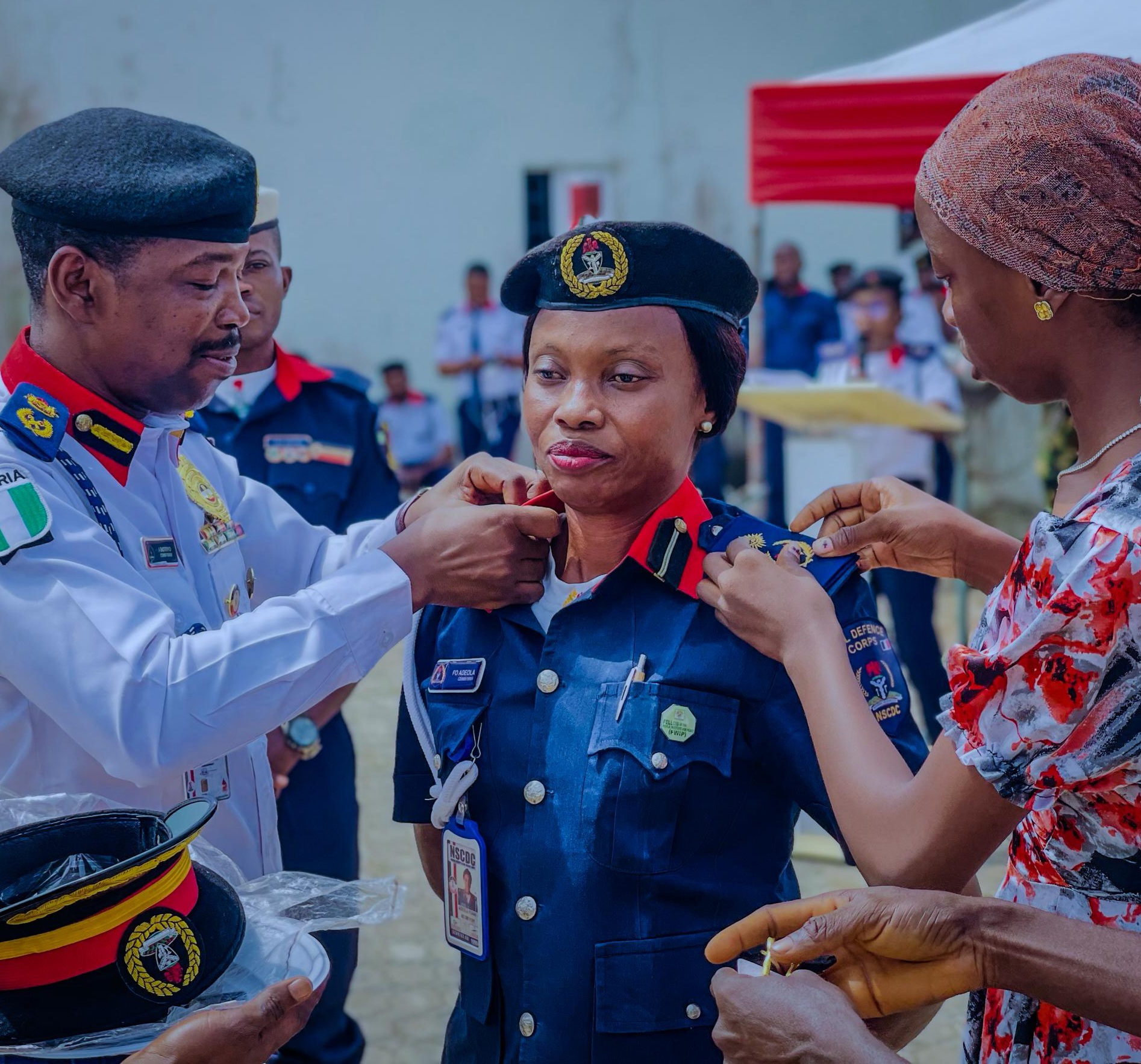
Pix: NSCDC Commandant General, Dr Ahmed Audi
By Isiaka Mustapha, CEO/Editor-in-Chief, People’s Security Monitor
In a nation grappling with mounting food insecurity, farmer-herder clashes, and the threat of banditry across agricultural communities, the deployment of dedicated security personnel tailored for agro-based protection is not just a welcome development; it is a strategic masterstroke. This is precisely what the Nigeria Security and Civil Defence Corps (NSCDC), under the visionary leadership of Commandant General Dr. Ahmed Abubakar Audi, demonstrated once again with the graduation of a fresh batch of Agro Rangers in Jos, Plateau State, on Tuesday.
This event not only reaffirms CG Audi’s proactive stance on rural security but also highlights his institutional reforms that have repositioned the NSCDC as a key stakeholder in Nigeria’s internal security architecture.
The Agro Rangers unit, a brainchild of the NSCDC in collaboration with the Federal Ministry of Agriculture and Rural Development, was set up to address a long-standing gap: the absence of a structured, trained security force tasked specifically with safeguarding Nigeria’s farmlands, food producers, and agro-investments. Since its inception, the unit has steadily grown in both visibility and impact, thanks to the consistent support and innovation of the Audi-led leadership.
The graduation of this new cohort in Jos represents more than just an increase in personnel; it signals a deepening of operational capacity. These newly inducted Agro Rangers underwent rigorous training in rural conflict resolution, arms handling, intelligence gathering, combat readiness, and community engagement strategies. They are equipped not just with weapons, but with the knowledge and cultural sensitivity required to de-escalate conflict in Nigeria’s diverse agricultural zones.
Plateau State, and Jos in particular, has often been the epicenter of agro-related conflicts due to its ethno-religious diversity, fertile farmlands, and strategic centrality. Hosting the graduation in Jos is symbolically and practically significant. It sends a strong message that the NSCDC is bringing solutions directly to the communities most affected, instead of operating from a distance.
Furthermore, this choice aligns with CG Audi’s decentralized approach to security management; one that recognises the uniqueness of local challenges and tailors responses accordingly. This strategy not only builds trust within communities but ensures faster, localized response to threats.
Since assuming office, Dr. Ahmed Audi has made it clear that his leadership is about impact, innovation, and institutional strength. Under his stewardship, the Agro Rangers have grown from a little-known concept to a nationally recognized special force. He has championed inter-agency collaboration, improved the welfare of operatives, and introduced high-standard training curricula, often benchmarked against global best practices.
What makes Audi’s leadership particularly effective is his data-driven, evidence-based style. His decision to increase the deployment of Agro Rangers comes at a time when Nigeria is battling the dual crises of food inflation and insecurity. Audi recognizes that without secure farms, there can be no food security, and without food security, national security is compromised.
The Agro Rangers have, over the years, successfully rescued kidnapped farmers, quelled brewing tensions between farmers and herders, recovered rustled cattle, and provided escort services to agricultural assets. Their presence in rural communities has also restored a level of confidence among displaced farmers, many of whom are now returning to their lands under the protection of these special forces.
With the graduation of this new batch, thousands more farmers stand to benefit from improved security. Agro-investors, both local and international will also be more encouraged to invest in rural development, knowing that protection of assets and personnel is increasingly being taken seriously by the Nigerian government.
What sets the Agro Rangers apart from other paramilitary initiatives is their rootedness in the community. These operatives are often drawn from the regions they serve, making them linguistically, culturally, and emotionally invested in their assignments. This bottom-up model of security is what CG Audi is championing across the board an inclusive security framework that doesn’t just police people, but protects them through partnership and understanding.
The graduation of the new Agro Rangers in Jos is not an isolated event. It is part of a larger, strategic recalibration of Nigeria’s approach to internal security an approach being driven by the foresight and unwavering commitment of CG Ahmed Audi. As Nigeria continues to search for solutions to its myriad security challenges, the NSCDC under Audi has carved out a clear niche: protecting the nation’s food basket through specialized, community-driven, and intelligent security.
For this, he deserves not just kudos, but a promotion from his present OFR national honour to the next national award of Commander of the Order of the Nigeria (CON).






